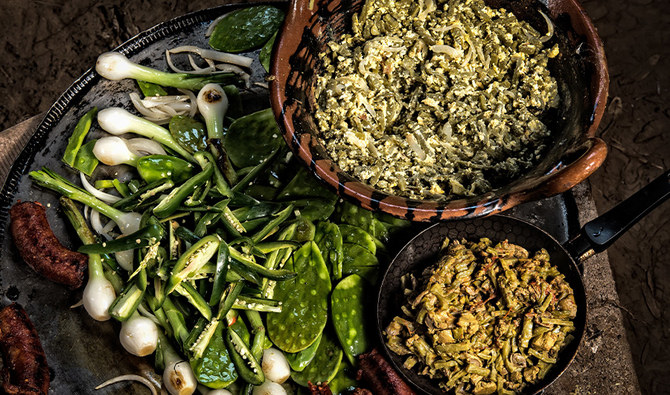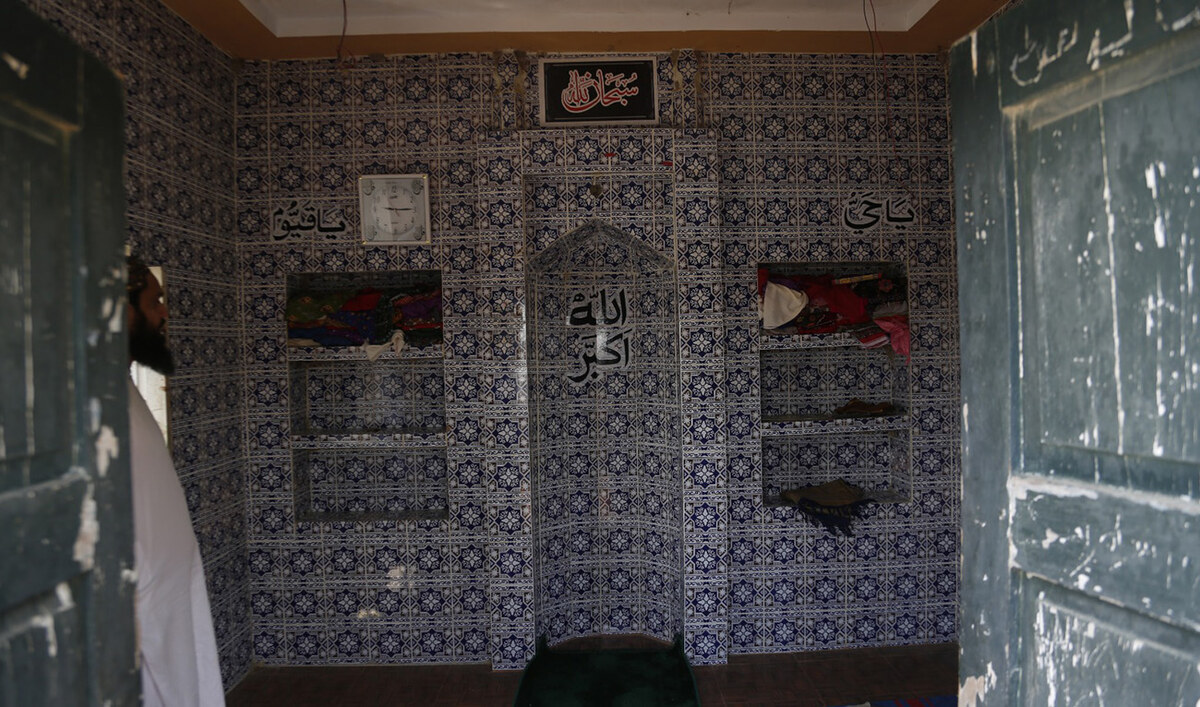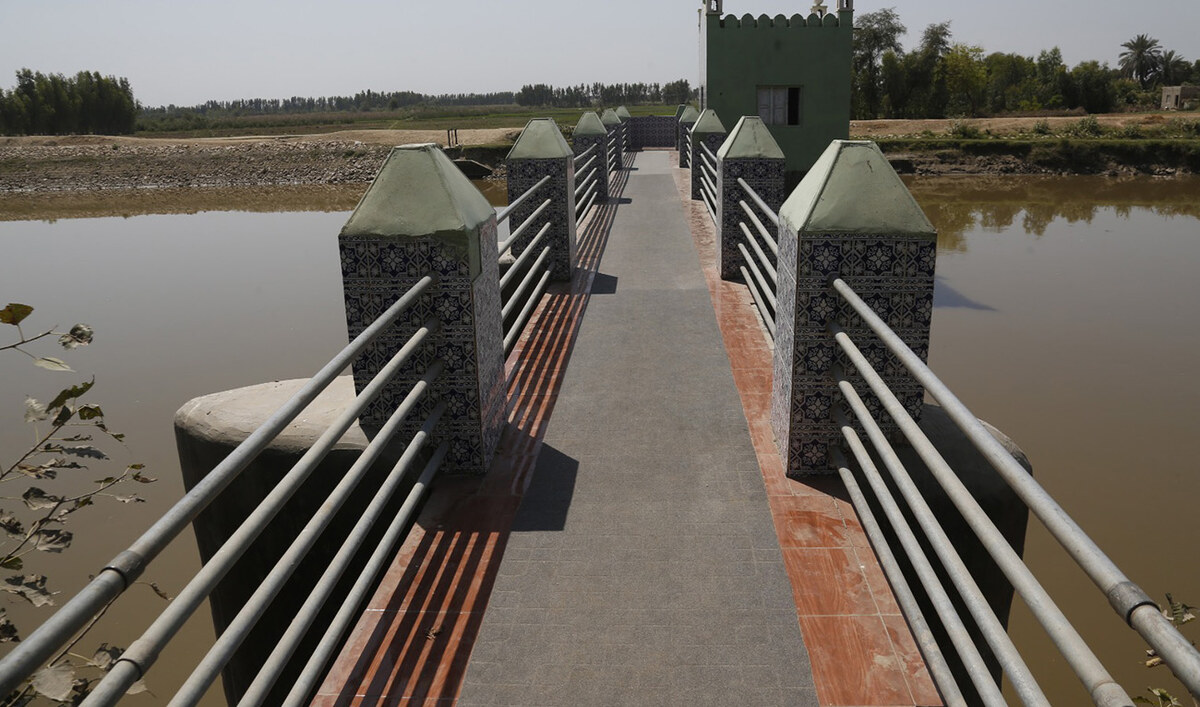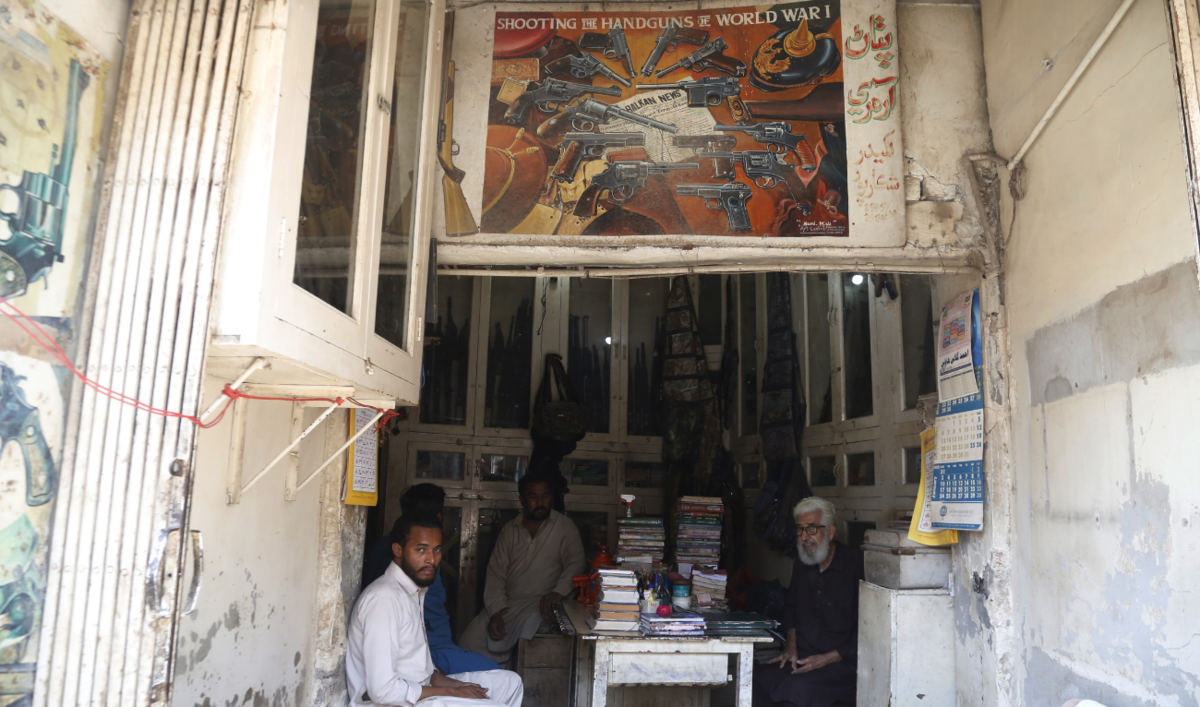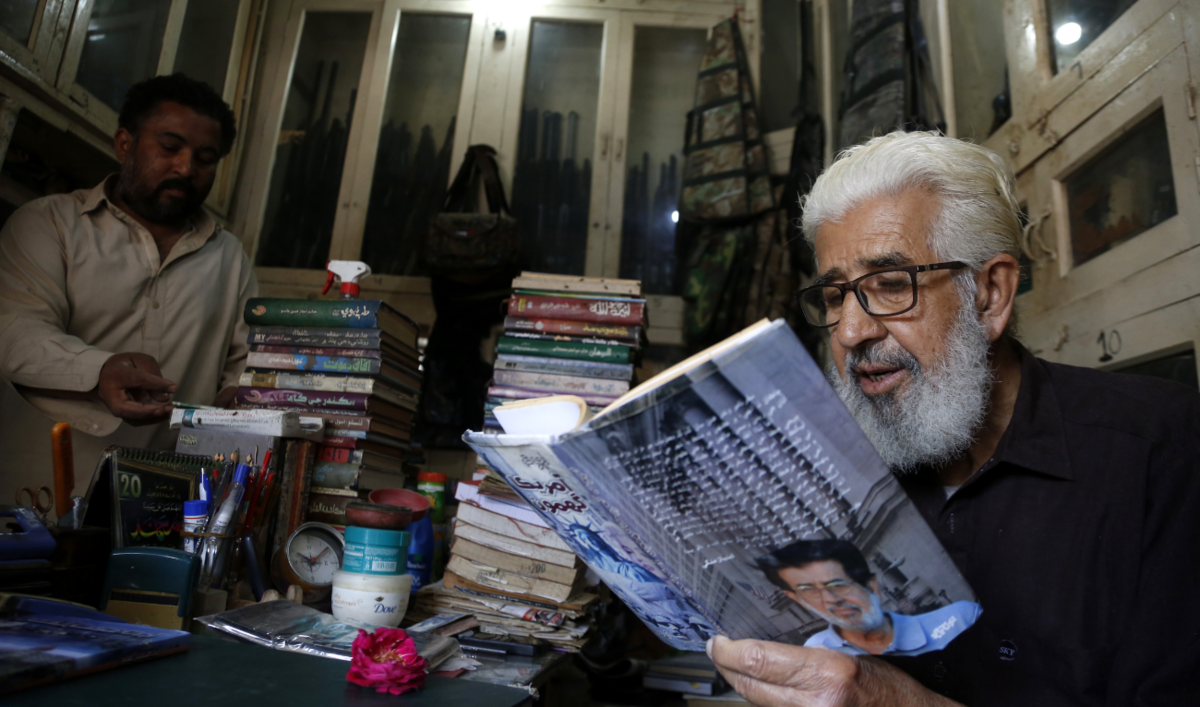ISLAMABAD: Pakistan is in a battle with a nemesis unforeseen – the skyrocketing prices of tomatoes! As one kilogram of the juicy diet staple was over Rs 300 in Karachi on Sunday, Arab News reached out to Pakistani chefs, who shared their go-to recipes that leave tomatoes out.
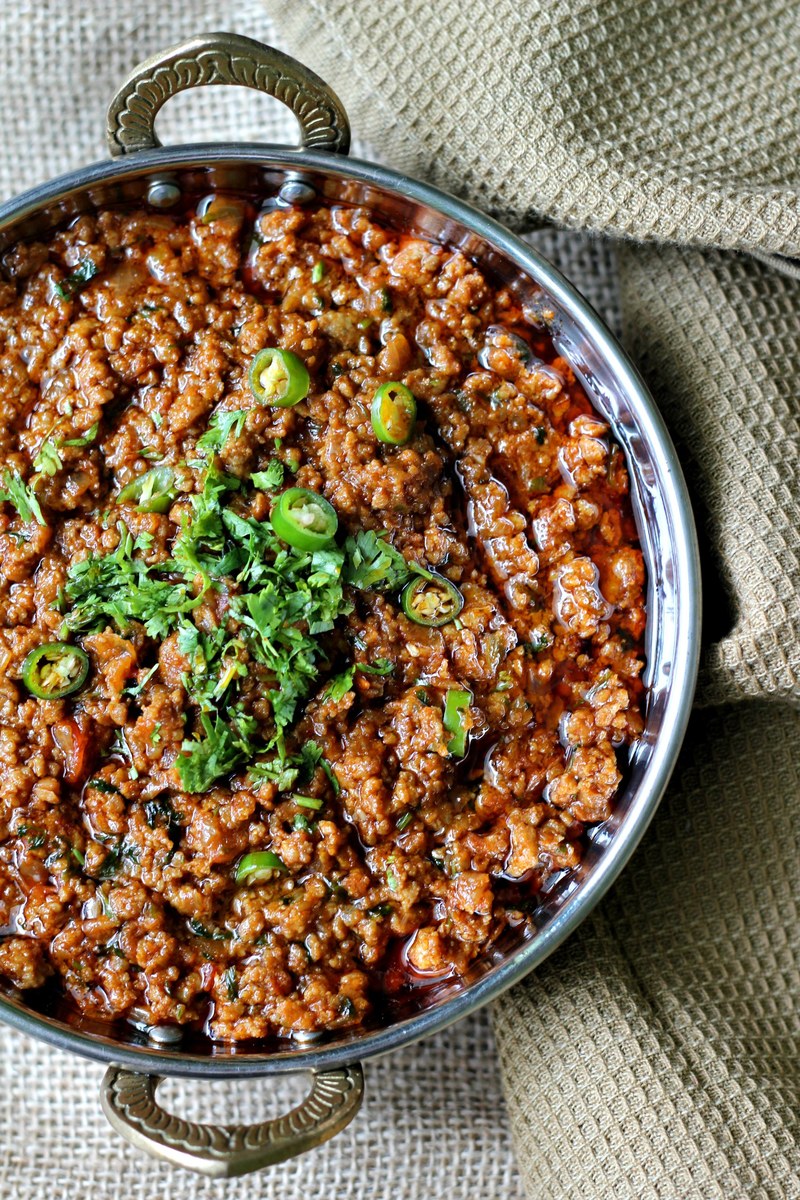
Chef Muneeze Khalid shares a family recipe for ground beef with a touch of pickle, achari dum ka keema. (Via Ruchika Randhap)
Achari dum ka keema
Muneeze Khalid, recipient of the Food Preneur of the Year award by the government of Punjab and WCCI, and of the Youngest Female Chef in Pakistan award by WACS and CAP, shared her family’s keema recipe that substitutes yogurt for tomatoes.
“This is a recipe I learnt from my father and it has been a staple in our house for as long as I can remember! Instead of using tomatoes, we use yogurt which also acts as a tenderizer. Even though there are certain dishes that can’t be made without tomatoes, yogurt can be used as a substitute in quite a few!“
Ingredients
1 kg mutton mince
2 large onions, sliced and fried till crisp
1 cup thick yogurt
1 tbsp ginger-garlic paste
3-4 green chilies cut into halves
2 tbsp crushed red chili
1 ½ tsp salt
3 tbsp lemon juice
2-inch piece of ginger sliced and julienned
1-2 tbsp raw papaya paste
1 tsp garam masala
3 tbsp roasted chickpeas
1 tbsp poppy seeds
10 black peppercorns
4-6 cloves
1 tbsp cumin seeds
4-5 green cardamom
1 large piece of coal
½ cup ghee
Preparation
Grind the chickpeas, cumin seeds poppy seeds, cloves, black peppercorns and green cardamom into a powder. In a large pan mix the powder with the mince, papaya paste, spices, ginger-garlic paste, salt, red chili, lemon juice, yogurt and ghee. Let it marinate in the fridge.
After 20 minutes, add fried onions and place on high heat, mixing well. Once the mince releases water, lower the flame, cook well, mixing until most of the liquid has dried out. Once oil comes on top, add garam masala, chilies and ginger slices. Increase the heat and cook for another five to eight minutes, mixing well.
Place a heat-proof bowl in the center of the keema and put the heated coal inside. Drizzle the coal with a little oil and cover. Cook till the smoke disappears. Serve with tandoori parathas.

Bhindi: Crispy, and a good mix of salty, sweet and spicy Batool Mohsin shares her recipe for fried bhindi. (Via Spicy Indian Kitchen)
Fried bhindi
When tomatoes are unavailable, yogurt comes to the rescue also for Batool Mohsin, the head chef a co-owner of Rina’s Kitchenette.
“I personally love tomatoes so wouldn’t want to cook without them. But in desi food, one can use less tomatoes and increase the use of yogurt to make a good curry!“
Ingredients
500 grams bhindi
1 tsp red chili powder
1/2 tsp cumin
1/2 tsp coriander powder
1/4 tsp turmeric
1/2 tsp chaat masala
1/2 tsp salt
1/2 cup gram flour (beaten)
juice of one lemon
oil for frying
Preparation
Cut bhindi into strips and remove all seeds. Wash and dry completely. Mix all the dry ingredients, add the lemon juice and half a teaspoon of oil. Mix well. Coat the bhindi with the dry mixture and deep fry in oil until crispy. Drain on a kitchen towel and sprinkle with a little more of chaat masala. Serve hot and crispy with tamarind chutney.

Palak Paneer: No tomatoes? No problem, Zubair Khan shares his palak paneer recipe. 29th, October 2018. (Via Khoka Khola Instagram)
Palak paneer
Another recipe comes from Zubair Khan, the head chef and owner of Khoka Khola, who shared his version of palak paneer.
“This particular dish packs a punch in terms health benefits, plus it’s super yummy and easy to make,” he said, adding that before starting to cook you should ensure “mise en place” – the arrangement and preparation of the ingredients. “Don’t start cooking unless the ingredients have been put in place.”
Ingredients
2 large bunches of spinach
2 green chilies
4 cloves of garlic, finely chopped
juice of half a lemon
1 tbsp of cream
1 tsp of cumin seeds
salt to taste
2 tsp of oil
250 grams of paneer, cubed
Preparation
Bring a large pan of salted water to a boil. Simmer the spinach leaves in the pan for about three minutes, uncovered. You will see the green of the spinach deepen. Switch off the heat, put the leaves in chilled water. It is important to them cool down.
Slit the green chilies and add mix them with the spinach in a blender. Pulse it coarse.
Separately, heat the oil in a karahi. Add cumin seeds. When they start to crackle, add the chopped garlic. As soon as the garlic turns brown, add the spinach gravy mix. Add a dash of salt. Remember that spinach has its own natural salt so the dish needs relatively little top-up.
When the gravy comes to a boil, add the paneer and simmer for three to four minutes. Stir a couple of times – very gently, you don’t want the paneer to crumble. Before serving, add lemon juice and it’s ready.

Aloo: Co-owner of Islamabad based Treat, Ali Paracha shares a recipe that reminds him of home and forgoes tomatoes, aloo kee bhujia. (Image via I Knead to Eat)
Aaloo ki bhujia
Ali Paracha, who co-owns Treat, suggested easing the discomfort of the ongoing tomato shortage with one of his favorite comfort foods, a simple Pakistani dish of potatoes, aloo ki bhujia. “I like this recipe because it is super simple and quick, and reminded me of home when I was at college,” he said.
The paste in his recipe is also the base for many other South Asian dishes. “If you can master this, you go in different directions and create a whole variety of different dishes by just adding some additional spices or tomatoes or onions.”
Ingredients
1 kg of potatoes, cut into pieces
1 tbsp oil for cooking
2 tsp ginger-garlic paste
1 tsp cumin
1 tsp red chili power
1/2 tsp turmeric
1/2 tsp nigella seeds (onion seeds)
coriander for garnish (optional)
1 cup of water
Preparation
Heat the oil and sauté the garlic-ginger paste. Add cumin, salt red chili powder and turmeric. Mix and add a bit of water to make into a paste. Add some more water to balance and prevent burning. Add potatoes and mix all the ingredients together. Again add some water and let it come to a boil. Cover and simmer for 10 minutes or until potatoes are cooked. When liquids are reduced to a paste, add onion seeds. Top with coriander.



